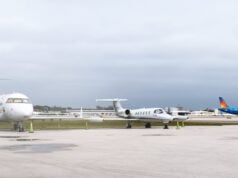
I want to express my sincerest sympathies to those whose careers are in turmoil due to this pandemic. This pandemic is unprecedented, and I certainly do not want to downplay the negative effects that uncertainty and unemployment play in the lives of airline pilots and individuals nationwide. However, I have noticed one positive trend because of this pandemic; labor and management at many airlines nationwide are working cooperatively to find solutions.
Historically, when the industry faces a downturn, initially management aims to obtain pay concessions, circumvent contractual obligations, and limit employee expectations. This mindset results in negative impact upon the livelihoods of employees, morale of the workforce and bad press for the industry. However, when crisis and uncertainty arise, managerial staff often believe they have no choice; revenues evaporate, so costs must be cut. The thinking goes that without significant business expense reduction, the organization will not survive, resulting in a worst-case situation for all groups. If you lived through one or two industry downturns, you can understand the fear. Things genuinely look bad, as they do now, in the heat of the crisis.
The problem is, consistently using employees as a piggybank, expecting labor to sacrifice in the downtimes without commensurate reward in the expansionary times, results in situations like we saw during the past few years. People who aspire to be pilots may look at the high training costs, time away from family, stressful workload and consistent downward pressure on pay and opt out in favor of other careers. This results in shortages of labor that can hinder growth or drive the cost of labor through the roof in expansionary times. The last few years have demonstrated this.
Further, poor employee morale can lead to poor health (i.e., increased sick calls), poor customer service, and reduced productivity (e.g., overtime flying, reduced effort to make on-time arrivals, etc). Forcing concessions hurts a business’ long-term prospects.
Airlines facing COVID had advantages heading into this downturn relative to other downturns. For instance, the CARES act offered a six-month reprieve; airlines were in the best financial shape in history after a long period of expansion and growth; an aging workforce has led to significant retirements in the short-term; labor sat on many boards or held significant financial interest in corporations. With these tailwinds, management and labor have moved in an unprecedented way. Rather than run the old playbook, they’ve thought creatively and seized opportunity to resolve common grievances while benefiting the corporation and its employees. This gives me hope for the future of management-labor relations in our industry, specifically as it relates to pilots.
Let’s look at how airlines have harnessed this moment. Many airlines have offered early retirement packages. For employees, those retiring received a portion of their pay while retaining complete or near-complete benefits. For the airline, the result is twofold. First, the airline can immediately start reducing gross expenses. Moreover, older pilots are more likely to be senior with higher per-hour rates (CASM), more vacation and better benefits. These pilots may also operate larger equipment, such as the Boeing 777 or Airbus A350, which typically serve international markets. Demand for internationally flying is even more depressed today than domestic flying, with expectations that a recovery could be much slower. Rather than simply furloughing junior pilots, displacing senior pilots to other aircraft fleets (such as 737 or A320), and incurring significant costs in the form of moving expense and training, management and labor are using early retirements to minimize the secondary and tertiary effects of staffing reductions. While furloughs aren’t completely mitigated, there is no doubt these efforts have reduced some needs.
Another option management and labor teams have created is a voluntary leave program or zero-hour bid lines. The former allows pilots to volunteer for short-term time off, ranging from one month to a year. The pilot receives similar pay and benefits as a pilot opting for early retirement yet flying currency and the relationship with employers is maintained. When the airline needs mandate an increase in staffing, a pilot can quickly rejoin the workforce. The zero-hour line concept is a little more controversial, yet for many who would be otherwise be furloughed, maintaining healthcare benefits during a pandemic is important. The option to work extra hours when available may help tide over those who are supporting families or still paying off their large training loans. Obviously, the goal of these programs is to reduce labor costs and prevent the separation of an employee from the job, otherwise resulting in a complex and expensive rehire and retraining process in the future. For employees, these programs can ensure that healthcare and other benefits are maintained while allowing for some income stream (which vary with each program).
One ultra-low-cost carrier is getting a preferential bidding system after working an agreement through with management, benefiting pilots and management in terms of monthly scheduling. Other airlines are offering scheduling flexibility by delaying bidding timelines (allowing management to cancel more flights before pilots bid, reducing the possibility a pilot is paid for a trip not flown) or reducing monthly salaries by a few hours in return for increased time off month-to-month. Most of these provisions are temporary. For labor this is critical; ensuring contracts are maintained throughout a crisis promotes careers, providing motivation for aspiring pilots to continue training. A strong pilot pipeline ensures the industry can grow when profits return.
I truly hope the industry learns from this crisis. Ironically, future uncertainty is certain. Labor and management can be productive partners, ensuring stability, profitability, and positive customer experience. But for that to occur, management must look beyond their old playbook of demanding permanent pay concessions for temporary crises.
























































































































